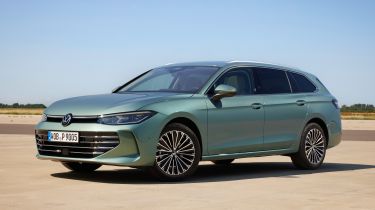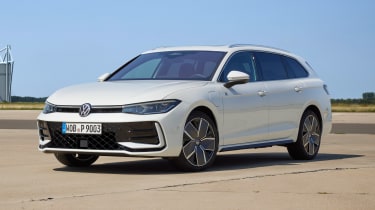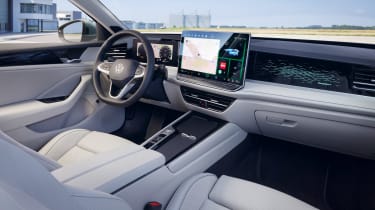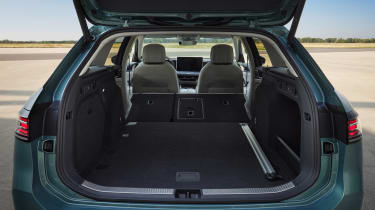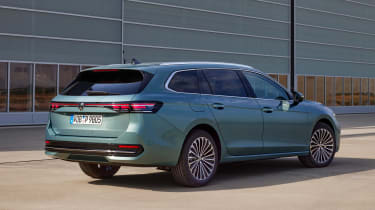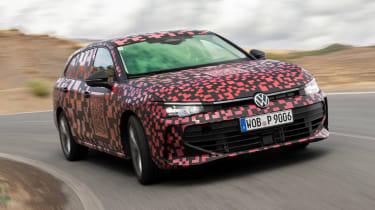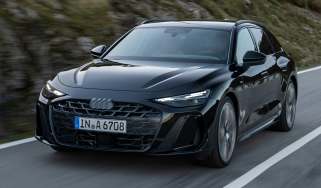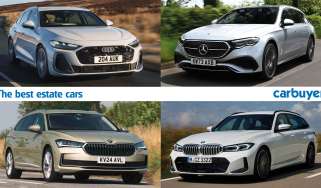Sleek new Volkswagen Passat to start from £38k
The next-generation Volkswagen Passat is now available to order as an estate-only premium family car
- Estate-only body style
- Petrol, diesel, mild-hybrid and plug-in hybrid powertrains
- Starting price of £38,480
UK pricing has finally been revealed for the ninth-generation Volkswagen Passat, with the new entry-point to the range costing £38,480. This represents a significant uplift in price over the outgoing model, which started from around £27k following its facelift in 2019. Order books are now open for the 1.5-litre petrol models, with hybrid variants joining the lineup later this year.
The hike in price represents Volkswagen’s ambition to lift the Passat further upmarket, sitting closer to rivals such as the BMW 3 Series Touring and the Audi A4 Avant, both of which start at around £40k. In another departure from previous iterations, the new Passat has ditched the saloon bodystyle; it will instead be offered solely as an estate.
Images of the new Passat reveal a look echoing Volkswagen’s electric lineup. The front and rear both get fashionable full-width light bars and the whole car has been treated to smoother, streamlined bodywork. It’s a sleek, hunkered-down design which has elements of the brand’s Arteon Shooting Brake about it, helping the Passat to give off a more elegant and premium feel. It’s also more aerodynamic than its predecessor, boasting a drag coefficient of 0.25Cd compared to the outgoing car’s official 0.31Cd figure.
Upgrading from entry-level Life trim to the mid-spec Elegance model will cost an additional £3,100. This brings sophisticated touches such as a slatted chrome grille and multi-spoke chrome wheels. At £42,830, the range-topping R-Line trim takes a sportier approach, with its wider mesh grille finished in black, slightly more flared side skirts, plus chunkier five-spoke wheels.
What’s the interior of the new Volkswagen Passat like?
The interior gets a simple, minimalist look with clean, straight lines and a large 12.9-inch infotainment screen equipped with Volkswagen’s latest MIB4 software dominating the centre of the dash – the same system we’ve seen in the newly-facelifted Volkswagen Golf. This can be swapped out for a larger 15-inch display at extra cost.
The brand claims the software is much more intuitive to use than before, with a permanent on-screen climate control bar and backlit sliders beneath it to adjust the temperature and volume. Different shortcuts can be assigned at the top of the screen, making it easier to switch between functions without having to access endless menus through the display.
The new Passat will come as standard with a 10.25-inch digital driver’s display with four configurable modes, and a head-up display will also be available. The car’s steering wheel will see the return of physical buttons, and the gear selector has been moved to the steering column to allow for more space for storage in the centre console, just like in the upcoming Skoda Superb, another closely-related car from the Volkswagen Group.
To justify the move upmarket, the Passat will get plenty of options to take on more premium brands such as Audi, BMW and Mercedes. These include features like adaptive suspension dampers which can be configured through the car’s on-board computer and by switching drive modes to adjust for comfort or better driving dynamics.
Other available features include matrix LED headlights, and Volkwagen’s Park Assist Plus and Pro autonomous parking tech. Park Assist Plus allows for the car to drive in or out of a space on its own, while the Pro pack can do the same without the driver sitting in the vehicle.
One of the first things you’ll notice is the Passat’s larger size, with a longer wheelbase providing more interior space. VW will build the new Passat at its factory in Bratislava, which also produces the Touareg SUV. The new car is being developed alongside the next-generation Skoda Superb, with both cars set to eventually share the same production line.
The upcoming Passat gets a 50mm longer wheelbase (the distance between the front and rear wheels), and is 144mm longer overall. The additional length means it will offer more room for rear passengers as well as a 40-litre larger boot, making it one of the most practical models in the VW lineup. This should give it a boot size of roughly 690 litres, expanding to a huge 1,920 litres with the seats folded flat. While plug-in hybrid versions can often end up compromising on boot space to accommodate the extra batteries, this won’t be the case for the Passat.
What engines are offered with the new Volkswagen Passat?
The Volkswagen Passat will be offered with a range of engine options, all available solely with a DSG automatic gearbox (six-speed for the plug-in hybrid models and seven-speed for the rest of the range). Currently, the only option available to order in the UK is the 148bhp 1.5-litre eTSI 48-volt mild-hybrid model with ‘enhanced Active Cylinder Management’ – a feature that allows the engine to shut off individual cylinders to save fuel when coasting.
Two 2.0-litre four-cylinder turbocharged petrol engines with either 201bhp or 261bhp and 4MOTION four-wheel drive will join the lineup at a later date.
Unlike the approach taken by many other car makers, Volkswagen has kept its diesel offerings for the new Passat. Buyers can choose between 120bhp and 148bhp TDI engines, both available with front-wheel drive, and a more powerful 190bhp diesel engine with four-wheel drive as standard. The latter boasts a towing weight of up to 2,200kg making it an attractive choice for drivers with a caravan or trailer.
Finally, the latest Passat will get two plug-in hybrid options. These eHybrid models use a 1.5-litre turbocharged four cylinder petrol engine mated to an electric motor for outputs of 201bhp or 268bhp. The electric motor used in both models gets a 19.7kWh battery with the same physical size as in the outgoing Passat plug-in hybrid, but is now more energy-dense and capable of up to 62 miles of electric range. With a full tank of petrol and a fully charged battery, Volkswagen says drivers could get a total range of over 620 miles.
The good news is that when you do need to charge, the new eHybrids will get DC rapid charge compatibility with speeds of up to 50kW, meaning a 10-80% top-up of the battery will take around 25 minutes. An 11kW on-board charger also means that topping up from home could take just two hours.
Volkswagen Passat prototype review - Jordan Katsianis
The camouflaged prototype we tested was fitted with Volkswagen’s mild-hybrid 1.5-litre petrol engine with around 148bhp, and a DSG automatic gearbox sending power to the front wheels. On the road, our first impressions were how smooth and calm the car already feels from behind the wheel.
Even on the rougher road surfaces around Volkswagen’s Ehra Lessien testing facilities, the prototype’s adaptive suspension – that’s likely to be optional when the Passat is available to order – does a good job of filtering out bumps before they ruffle too many feathers inside the cabin.
While the initial response from the petrol prototype’s accelerator could be slightly hesitant at times, it felt better than the existing versions of this powertrain that we’ve tried, and it’s noticeably refined too.
Drive a bit more keenly in ‘Sport’ mode and the Passat feels composed and reassuringly stable. Despite its extra length, it also feels a bit more agile, thanks to its improved suspension, and steering that now adds lock a bit more quickly as you turn the wheel.
There might be an estate version of the electric Volkswagen ID.7 on its way, but for those who aren’t ready to make the switch just yet – and Passat drivers do tend to rack up high mileages that could make on-route charging undesirable – the latest Passat shouldn’t feel like too much of a compromise.
If you're after performance as well as practicality, read our list of the top 10 best fast estate cars...
Recommended
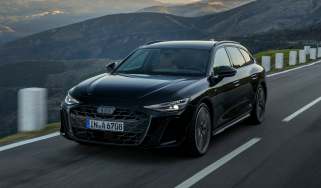
New Audi A6 Avant driven: Does this fresh big estate recipe leave a sweet taste?
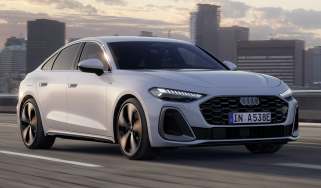
New Audi A5 e-hybrid PHEV beats BMW 330e for speed and range
Most Popular
Tips & advice

Car dashboard warning lights: what does each symbol mean?

Electric car charging stations: public networks, charger types, apps and maps


